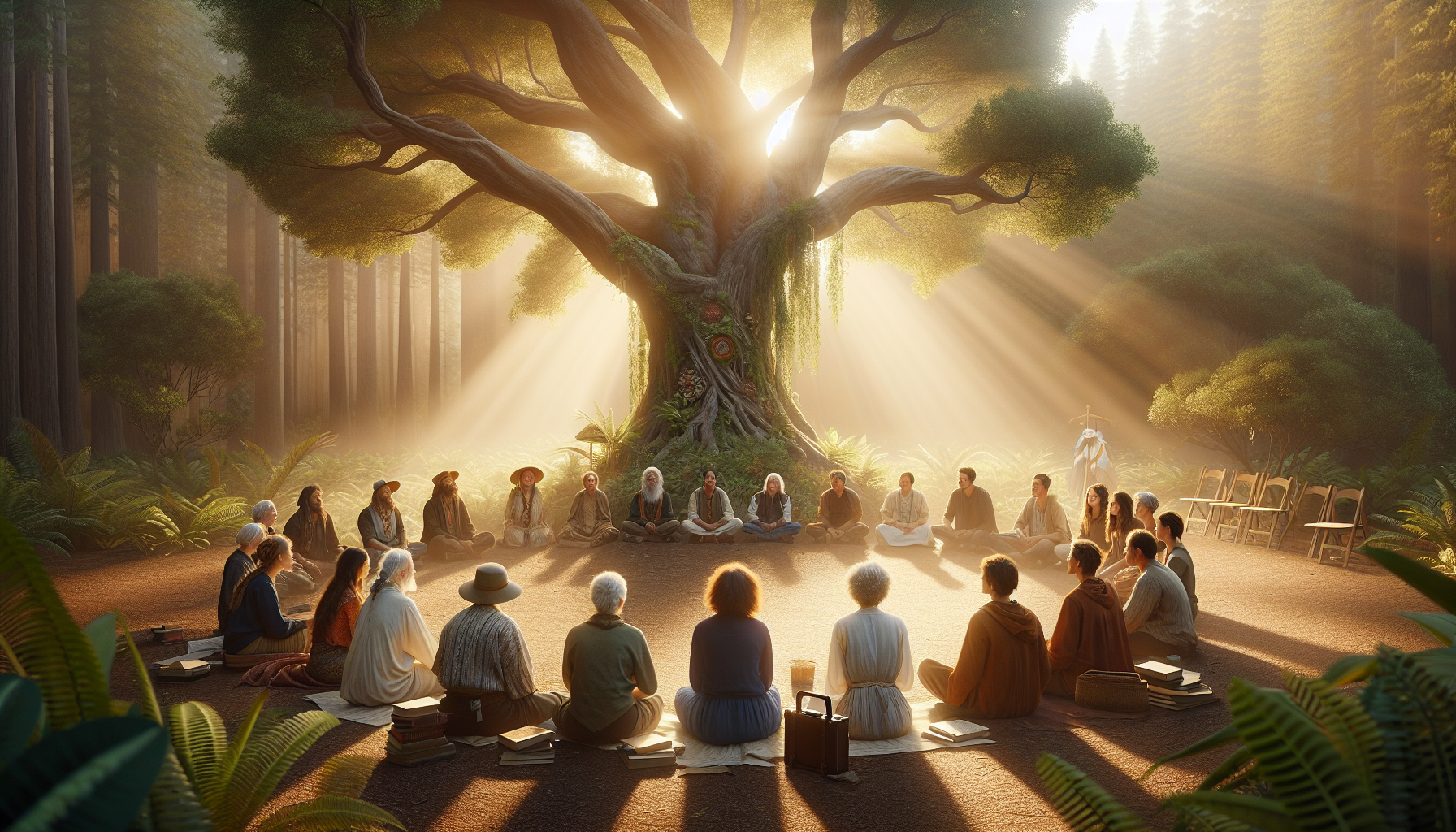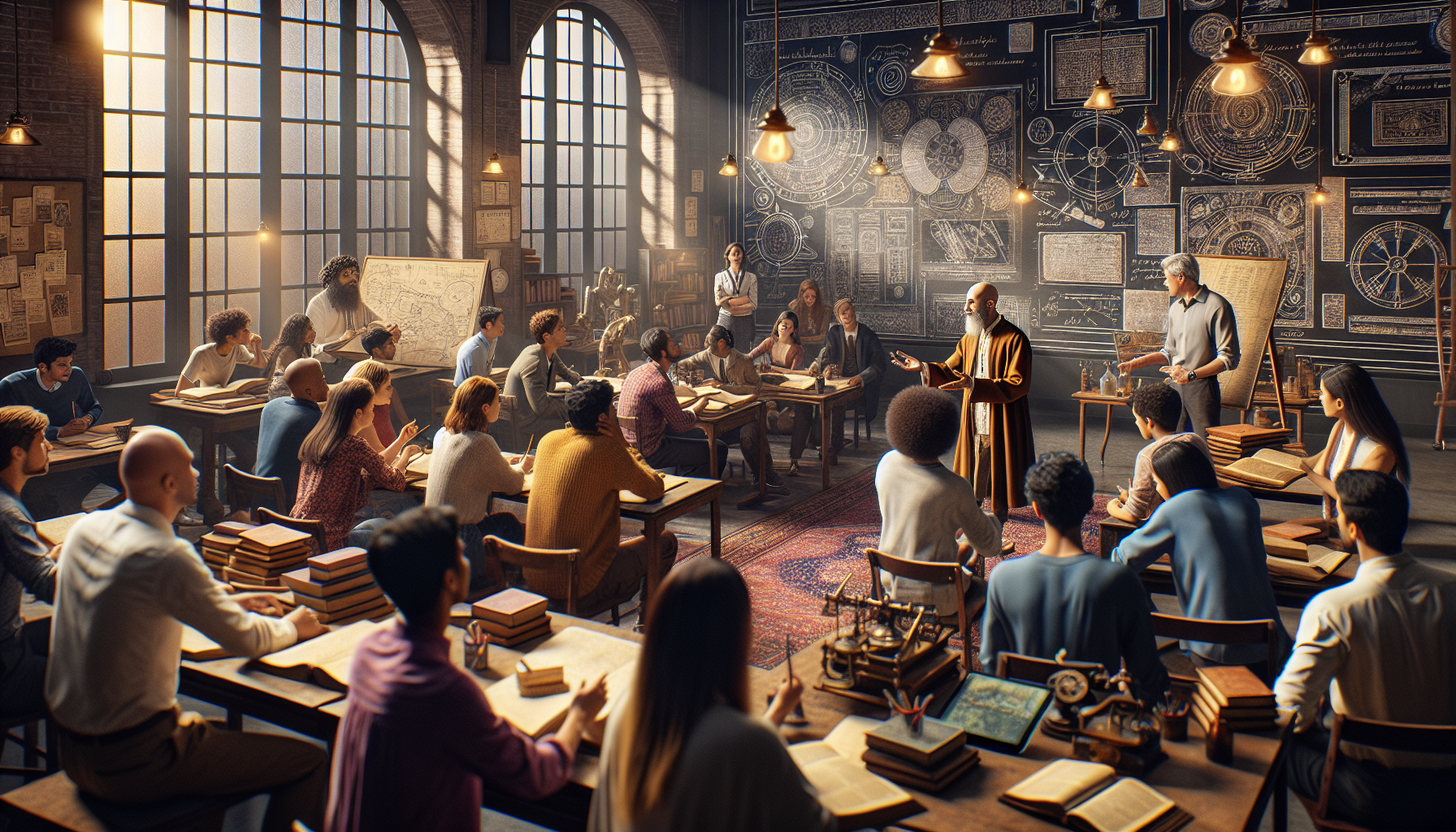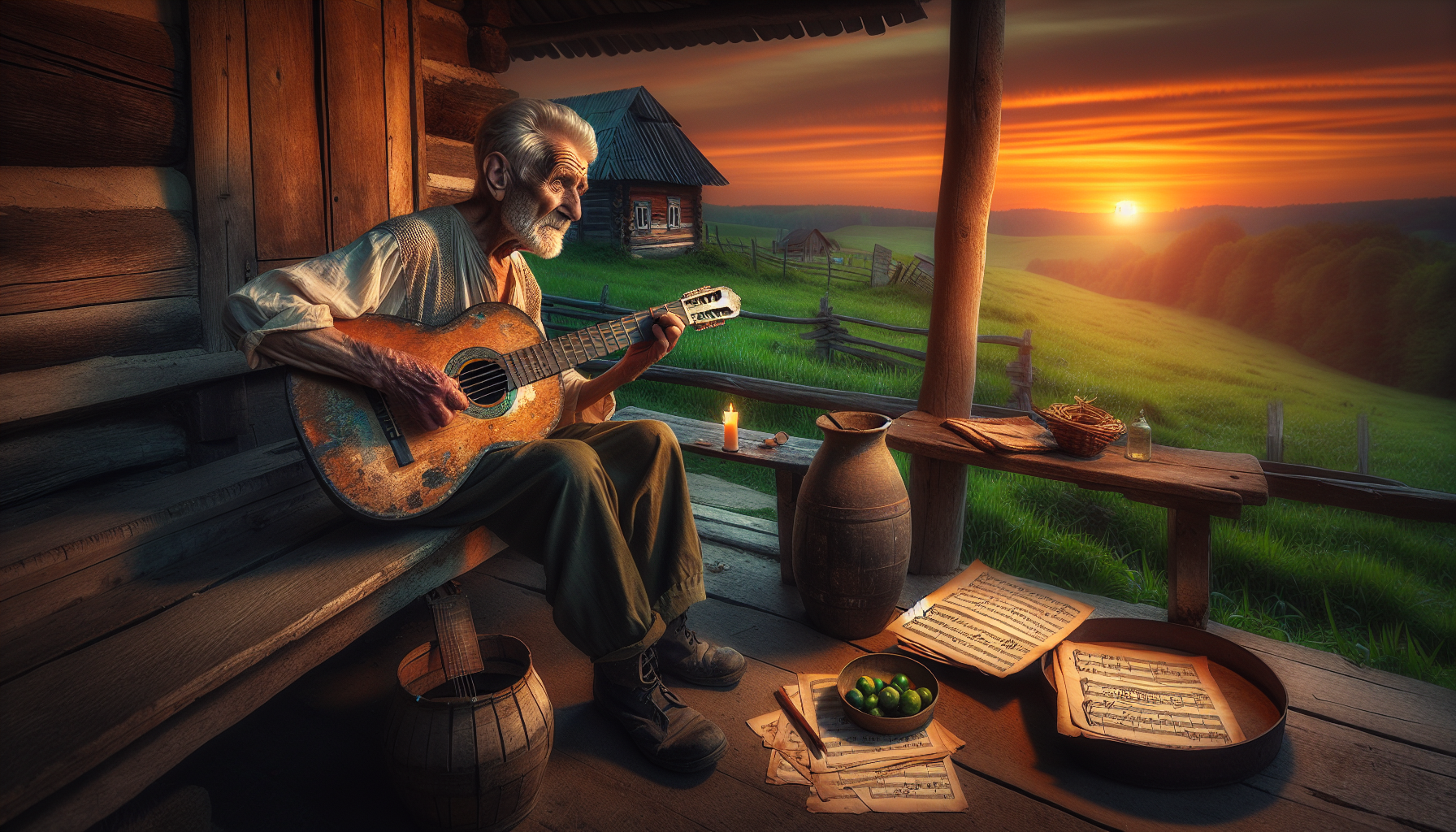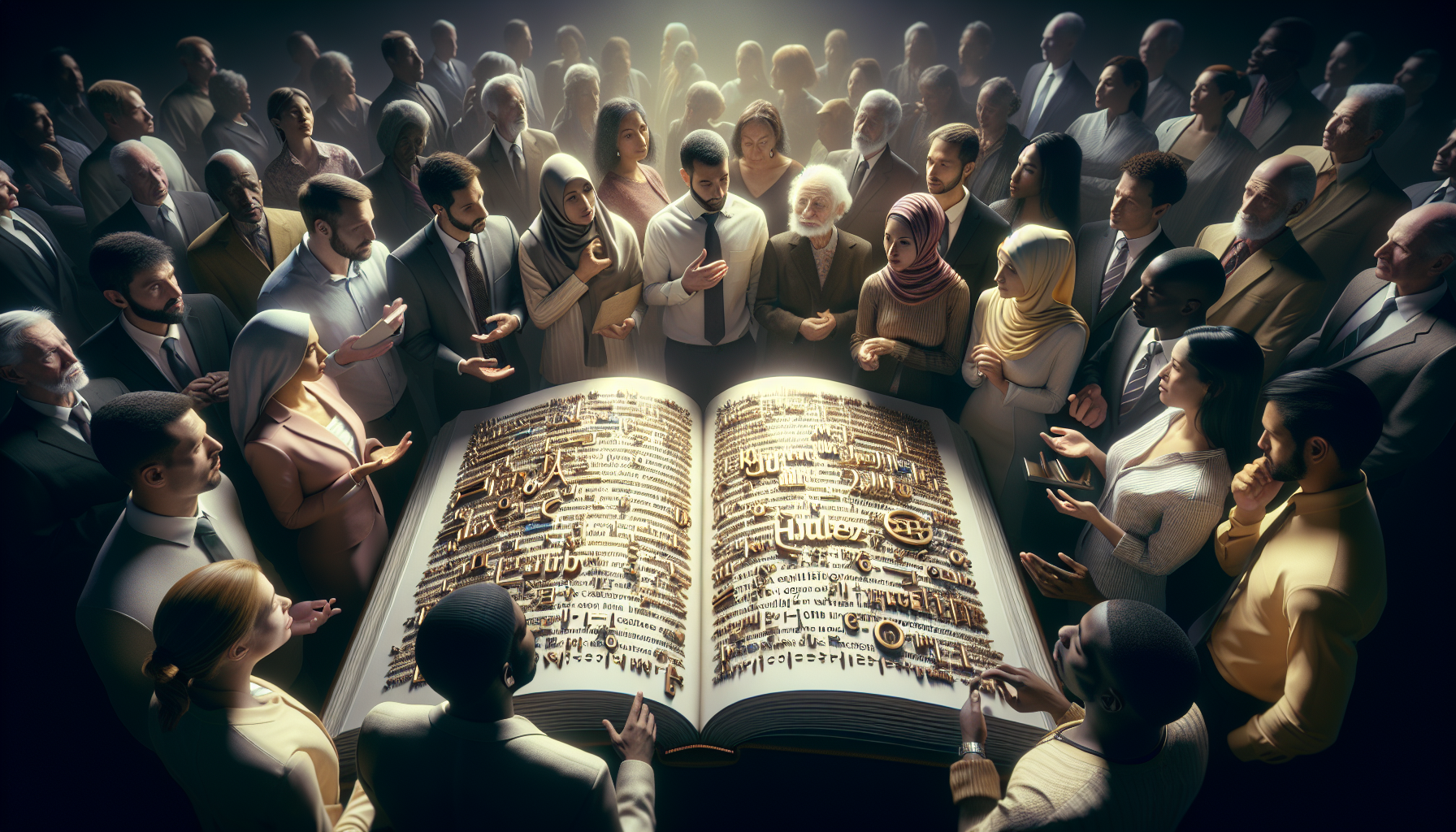In a world that increasingly values progress and innovation, there’s a profound and often overlooked treasure trove of wisdom waiting to be rediscovered in our past. This wisdom, deeply embedded within the practices and traditions of our ancestors, offers us a unique lens through which to view our heritage. One such tradition, ancestral debate practice, serves as a powerful conduit for connecting with our roots. Through engaging in the art of debate as our forebears did, we not only honor their legacy but also unearth insights that can guide us in navigating the complexities of modern life. 🌍✨
Imagine sitting around a fire, the crackling embers casting a warm glow on eager faces, each participant poised to share their perspective on matters of great importance. This scene, which might seem distant and foreign to us now, was once a central part of communal life in many cultures. Debating was not merely about arguing a point; it was a means of forging connections, strengthening community bonds, and deepening one’s understanding of the world. It was a practice that cultivated critical thinking, empathy, and a profound respect for diverse viewpoints. By revisiting and embracing these ancestral debate practices, we open ourselves up to a rich tapestry of cultural heritage that can profoundly influence our lives today.
In this article, we will explore the multifaceted benefits of engaging in ancestral debate practices. We will delve into how these practices can enrich our understanding of personal identity, bolster community ties, and provide us with valuable tools for conflict resolution. Additionally, we’ll examine specific examples from various cultures around the globe, highlighting how different societies have harnessed the power of debate to maintain harmony and foster intellectual growth. Through these narratives, we’ll illustrate how reconnecting with these traditions can lead to a more grounded and meaningful existence.
So, whether you’re seeking to deepen your connection to your heritage, enhance your critical thinking skills, or simply explore new avenues of personal growth, ancestral debate practices offer a compelling path forward. Join us as we embark on this journey of rediscovery, and uncover the timeless wisdom that awaits in the echoes of the past. Together, let’s rekindle the spirit of dialogue and embrace the power it holds in bridging the gap between who we were and who we aspire to become. 🕊️💬
The Significance of Ancestral Practices
In recent years, there’s been a growing interest in reconnecting with one’s roots and exploring ancestral practices. This resurgence isn’t merely a trend; it’s a profound journey towards understanding who we are by looking into where we came from. Ancestral debate practice, in particular, serves as a powerful tool in this exploration. By engaging in the debates and discussions that our ancestors once valued, we gain insight into their worldviews, values, and societal structures. These debates, often centered around moral dilemmas, community decisions, and philosophical inquiries, were the backbone of many ancient cultures.
Engaging with ancestral debates is more than an intellectual exercise; it’s a way to feel connected with those who came before us. These debates were often passed down orally, highlighting the importance of dialogue in preserving cultural narratives. In many indigenous cultures, oral traditions were the primary means of preserving history, law, and social norms. The revival of these practices provides a unique opportunity to engage with these stories and ideas in their original, intended format. In doing so, individuals can foster a deeper connection to their heritage and cultivate a sense of identity that is informed by generations past.
Moreover, by engaging in ancestral debate practices, individuals can develop critical thinking and analytical skills that are valuable in contemporary contexts. These debates were not only about defending a position but also about understanding the opposing viewpoint and finding common ground. This process encourages a more nuanced understanding of complex issues and enhances one’s ability to articulate and defend their perspectives. In today’s polarized world, these skills are more relevant than ever, making ancestral debate practices not just a tool for personal growth, but also a means to contribute positively to modern societal discourse.
The Role of Ancestral Debate in Modern Society
As we delve deeper into the role of ancestral debate in modern society, it becomes clear that these practices offer more than just a historical connection. They provide a framework for addressing current issues with a perspective that is both time-tested and culturally rich. Ancestral debate encourages us to examine problems from multiple angles, fostering empathy and understanding in the process. This approach can be particularly useful in today’s globalized world, where diverse perspectives often clash.
The integration of ancestral debate practices into modern education systems could revolutionize how critical thinking and cultural studies are taught. By incorporating these debates into curricula, educators can provide students with a holistic understanding of history and culture. This method not only highlights the importance of preserving cultural heritage but also emphasizes the value of dialogue and discussion as tools for learning. Imagine a classroom where students engage in debates as their ancestors did, challenging each other while also learning to appreciate the depth and complexity of different cultural narratives.
Beyond educational settings, ancestral debates can also play a significant role in community building. Local groups and organizations dedicated to preserving cultural heritage can use these debates as a platform for bringing people together. By discussing issues relevant to the community, individuals can find common ground and work towards solutions that honor their shared heritage. This sense of unity and purpose can strengthen community bonds and foster a collective identity that is both inclusive and respectful of diverse backgrounds.
Exploring Ancestral Debate Techniques
An essential aspect of uncovering the power of ancestral debate practice lies in understanding the techniques that were employed. These methods vary widely across cultures, each with its own unique set of rules and styles. Some cultures favored structured formats, where participants followed a strict order of speaking and rebuttal, while others embraced more fluid, open-ended discussions. Understanding these techniques can provide valuable insights into the cultural priorities and values of our ancestors.
One common technique in ancestral debates is the use of storytelling. Stories were not only a way to convey information but also a means of persuasion. By crafting compelling narratives, debaters could engage their audience emotionally and intellectually. This technique is still prevalent today, as modern debaters and public speakers often use stories to illustrate their points and connect with their audience. The power of storytelling in debate highlights the importance of understanding and appealing to the human experience, a timeless skill that transcends cultural boundaries.
Another notable technique is the emphasis on active listening. In many ancestral debate traditions, listening was just as important as speaking. Participants were encouraged to truly understand the opposing viewpoint before responding, fostering a culture of respect and empathy. This approach contrasts sharply with the often adversarial nature of modern debates, where participants focus on winning rather than understanding. By adopting this technique, individuals can cultivate more meaningful and productive discussions, both in personal and professional settings.
Practical Applications of Ancestral Debate
Exploring the practical applications of ancestral debate practices reveals their potential to influence various aspects of contemporary life. From education to conflict resolution, these practices offer valuable tools for navigating complex situations. For instance, in the realm of education, ancestral debates can serve as an engaging way to teach students about history, culture, and critical thinking. By participating in debates modeled after those of their ancestors, students can develop a deeper appreciation for diverse perspectives and hone their analytical skills.
In conflict resolution, the emphasis on empathy and understanding inherent in ancestral debate practices can lead to more effective and sustainable solutions. By approaching conflicts with a mindset of collaboration rather than competition, individuals can work towards resolutions that honor the needs and values of all parties involved. This approach can be particularly beneficial in multicultural settings, where differing cultural norms and expectations can lead to misunderstandings and tensions.
Furthermore, ancestral debates can be used as a tool for personal growth and development. Engaging in these practices encourages individuals to reflect on their values and beliefs, challenging them to articulate and defend their positions. This process can lead to greater self-awareness and a more profound understanding of one’s identity and heritage. As people become more attuned to the nuances of their cultural background, they can foster a stronger sense of belonging and purpose.
The Future of Ancestral Debate Practices
Looking towards the future, the potential for ancestral debate practices to evolve and adapt is vast. As technology continues to advance, new platforms for these debates are emerging. Online forums, social media, and virtual reality offer exciting opportunities to engage with these practices in innovative ways. These digital spaces can facilitate global connections, allowing individuals from diverse backgrounds to participate in ancestral debates and share their unique perspectives.
The integration of technology into ancestral debate practices also opens up new possibilities for education and cultural preservation. Virtual reality, for example, can create immersive experiences that transport individuals to the settings of their ancestors’ debates. By experiencing these environments firsthand, individuals can gain a deeper understanding of the cultural context and significance of these practices. This approach can be particularly impactful for younger generations, who may be more accustomed to digital learning environments.
Moreover, as awareness and interest in ancestral debate practices continue to grow, there’s potential for these practices to influence broader societal change. By promoting dialogue, understanding, and empathy, ancestral debates can contribute to a more inclusive and harmonious world. As more people engage with these practices, the potential for cross-cultural collaboration and mutual respect increases, paving the way for a future where diversity is celebrated and valued.
How to Get Started with Ancestral Debate Practices
For those interested in exploring ancestral debate practices, there are several ways to get started. Local cultural centers and heritage organizations often offer workshops and events focused on these practices. Participating in these activities can provide a hands-on introduction to the techniques and styles of ancestral debates. Additionally, many online resources and communities are dedicated to exploring and preserving these practices, offering a wealth of information and support for those new to the field.
To begin your journey, consider researching the debate traditions of your cultural background. Understanding the historical context and significance of these practices can provide a foundation for your exploration. From there, you can experiment with different debate techniques, either on your own or with a group. Remember that the goal of ancestral debate is not only to engage in intellectual discourse but also to connect with your heritage and gain a deeper understanding of yourself and the world around you.
Finally, as you delve into the world of ancestral debates, be open to the possibilities that these practices offer. Whether you’re seeking to deepen your understanding of your cultural roots, develop critical thinking skills, or foster meaningful connections with others, ancestral debates have the potential to enrich your life in countless ways. Embrace the journey and allow it to guide you towards a deeper connection with your heritage and a more profound appreciation for the diverse tapestry of human experience.
Resources and Further Exploration
To support your exploration of ancestral debate practices, here are some resources and tools that can help you along the way:
- Books: There are numerous books dedicated to the history and techniques of ancestral debate practices. These texts can provide valuable insights and guidance for those looking to deepen their understanding.
- Online Communities: Joining online forums and social media groups focused on ancestral debates can connect you with others who share your interest. These communities often provide a platform for discussion, resource sharing, and support.
- Workshops and Events: Many cultural organizations host workshops and events dedicated to exploring ancestral debate practices. Attending these gatherings can provide hands-on experience and opportunities to learn from experts in the field.
For a visual exploration of ancestral debate practices, consider watching this insightful YouTube video: “Reviving Ancestral Debates: A Journey into the Past” by Heritage Connection. Watching this video can provide a deeper understanding of the techniques and significance of these practices.

Conclusion
**Conclusion: Embracing the Rich Tapestry of Our Heritage**
As we draw the curtains on our exploration of ancestral debate practices, it’s essential to reflect on the profound journey we’ve undertaken. Through our deep dive into the past, we’ve unearthed the pivotal role that these practices play in bridging our present with our heritage. By engaging in the art of debate, as our ancestors did, we unlock a treasure trove of cultural wisdom, personal identity, and communal connection.
To recap, we embarked on this exploration by understanding the historical significance of debate as a tool for knowledge transmission and community building. From the structured rhetoric of ancient Greece to the vibrant oral traditions of African societies, debate has been a cornerstone of cultural expression and intellectual growth. This historical context laid the foundation for appreciating how these practices shaped societal values and governance, fostering a sense of belonging and identity among individuals.
Moreover, we delved into the personal and societal benefits of reconnecting with our ancestral debate practices. On a personal level, embracing these traditions allows individuals to gain insights into their lineage, fostering a sense of pride and belonging. It provides a platform to honor our ancestors by keeping their voices and perspectives alive in contemporary discourse. On a societal level, these practices encourage diversity of thought, promoting a culture of inclusivity and mutual respect. They serve as a reminder of our shared human experience, bridging cultural and generational divides.
The cultural renaissance sparked by revisiting ancestral debate practices cannot be overstated. In a world increasingly dominated by digital interactions and fleeting connections, these age-old practices offer a profound counterbalance. They invite us to slow down, to engage deeply with ideas, and to listen actively to diverse perspectives. By doing so, we cultivate a more empathetic and understanding world, one conversation at a time.
As we navigate the complexities of modern life, the lessons drawn from ancestral debates are more relevant than ever. They remind us of the power of dialogue, the importance of listening, and the value of diverse perspectives. These are not just relics of the past but living traditions that can inform our future. By integrating these practices into our daily lives, we not only honor our heritage but also enrich our personal and communal experiences.
In reinforcing the importance of connecting with our roots through debate, we encourage you, dear reader, to take action. Reflect on your own heritage and consider how the debate practices of your ancestors might inform your worldview. Engage in conversations with family members, delve into historical texts, or participate in cultural forums that celebrate these traditions. By doing so, you contribute to the preservation and evolution of these practices, ensuring they remain vibrant and relevant for future generations.
We also urge you to share your journey with others. Whether through social media, community gatherings, or personal conversations, your stories and insights can inspire others to embark on their own paths of discovery. The more we share and engage, the richer our collective understanding becomes.
Lastly, we invite you to comment on your experiences and insights. How has connecting with your ancestral debate practices influenced your sense of identity and community? What challenges have you faced, and what triumphs have you celebrated along the way? Your contributions to this ongoing dialogue are invaluable, helping to create a tapestry of shared experiences that enrich us all.
In conclusion, uncovering our roots through ancestral debate practices is a journey of discovery, connection, and empowerment. It is an invitation to engage with our heritage in a meaningful and transformative way. By embracing these traditions, we not only honor the past but also pave the way for a more connected and compassionate future. Let us continue to explore, share, and celebrate the rich tapestry of our collective heritage. 🌍✨
For further exploration on the power of ancestral debate practices and their impact on cultural identity, consider visiting these resources:
1. Smithsonian Center for Folklife and Cultural Heritage – An excellent source for understanding the role of cultural practices in shaping identity.
2. The Ancestral Voices Project – A platform dedicated to exploring and preserving African spiritual and philosophical traditions.
These resources offer a wealth of information and perspectives that can further enrich your understanding of this fascinating topic.
Toni Santos is a visual storyteller and educational ethnographer whose work celebrates the fluid knowledge systems of nomadic cultures. Through art and research, Toni brings attention to how learning has thrived outside traditional institutions—rooted in movement, oral tradition, and deep connection to land and community.
Guided by a passion for ancestral wisdom, adaptive pedagogy, and cultural resilience, Toni explores the tools, rituals, and environments that once shaped the minds of travelers, herders, and migrating communities. Whether illustrating storytelling circles beneath open skies, wearable mnemonic devices, or maps woven into textiles, Toni’s work honors learning as a lived, sensory, and communal experience.
With a background in visual anthropology and intercultural design, Toni reconstructs the educational models of mobile societies through images and narratives that restore their dignity and relevance in today’s world.
As the creative mind behind Vizovex, Toni shares a rich tapestry of visual essays, artifact-inspired art, and curated stories that reveal the genius of teaching and learning on the move.
His work is a tribute to:
The wisdom of learning through journey, rhythm, and story
The spatial and environmental intelligence of nomadic cultures
The power of intergenerational knowledge passed outside walls
Whether you’re an educator, researcher, or lifelong learner, Toni invites you to step into a world where education is not confined, but carried—one step, one song, one shared insight at a time.




